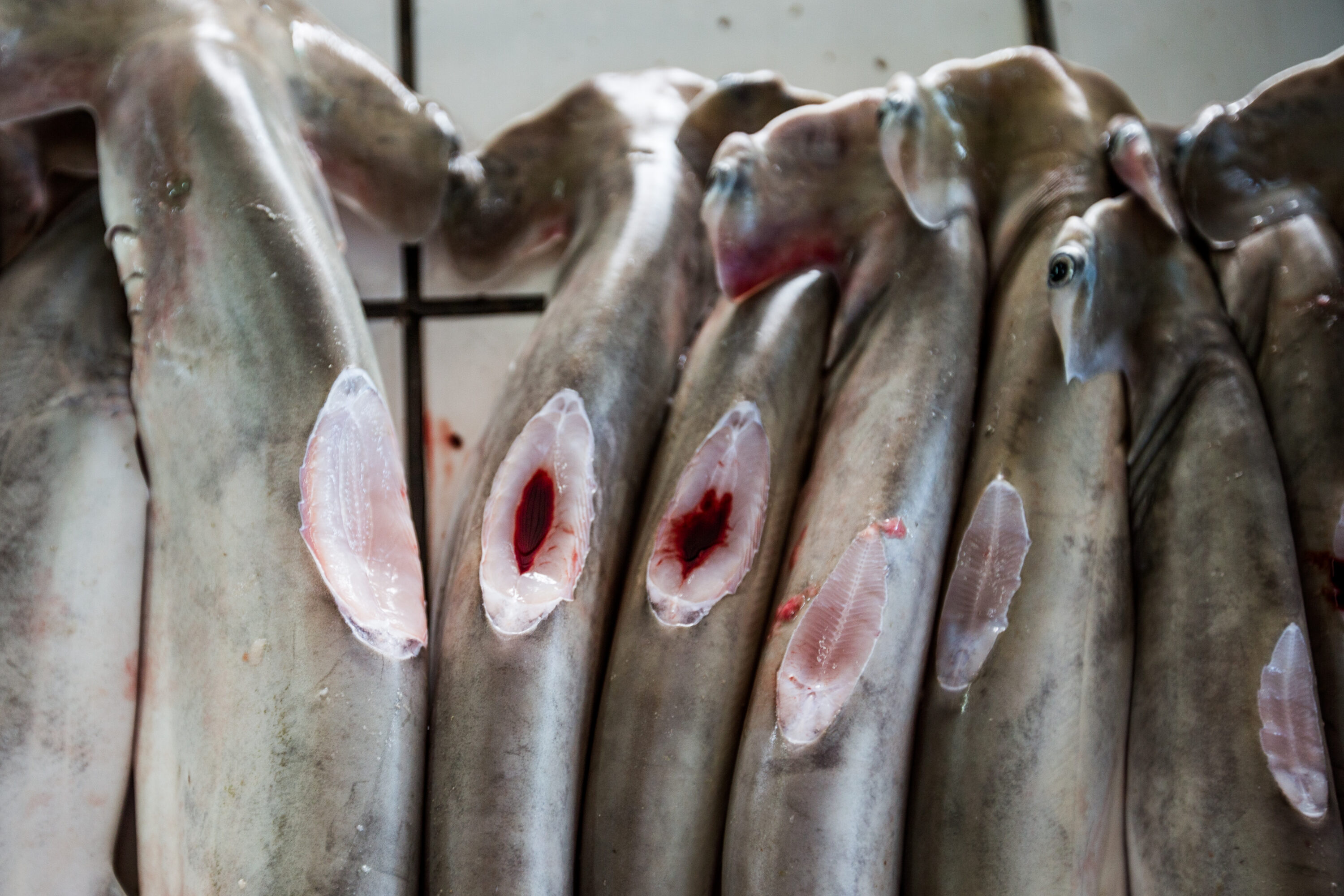New study reveals persistent illegal trade in protected sharks
Calls to strengthen the world's wildlife-trade treaty to prevent extinctions
- DNA evidence from Hong Kong’s markets shows fins from CITES-listed species, including critically endangered oceanic whitetip and hammerhead sharks, still traded in massive numbers
- Up to 95% of oceanic whitetip shark trade is illegal, despite global protections
- WCS says findings highlight the need for Appendix I uplisting and tougher enforcement of CITES and fisheries rules
- Upcoming CITES CoP20 could add stronger protections for key species
A new study published today in Science Advances reveals widespread non-compliance with international trade protections for endangered sharks, showing that global wildlife-trade rules are being routinely violated in one of the world’s largest and highest value marine markets.
The Convention on International Trade in Endangered Species of Wild Fauna and Flora (CITES) is a 184 nation treaty that regulates – or, for the most endangered species, bans – international trade in wildlife products. Species listed on Appendix II can be traded only if the trade is proven sustainable and legal; those on Appendix I cannot be traded commercially at all.
Led by researchers from Mote Marine Laboratory, along with Florida International University and the Wildlife Conservation Society (WCS) among others, the new study finds that critically endangered species such as hammerhead and oceanic whitetip sharks – first listed under Appendix II more than a decade ago – continue to appear in alarming numbers in Hong Kong’s markets, the world’s largest hub for the shark-fin trade.
said Demian Chapman, a co-author on the paper. “It has been this way since 2014, and unless countries take stronger actions these species may be doomed.”
Listed under Appendix II more than a decade ago, oceanic whitetip sharks continue to appear in alarming numbers in the world’s largest hub for the shark-fin trade. Photo © Christopher Vaughn-Jones
Using DNA analysis of more than 16,000 fins collected between 2015 and 2021, the researchers found that fins from CITES-listed species appeared in 6.5% of all sampling events – significantly higher than the level Governments report to CITES. In one striking case, they found that 70 times more fins from the Critically Endangered oceanic whitetip shark in Hong Kong markets than appear in official CITES reports, meaning over 95% of the trade in the species is illegal.
“CITES is the strongest global tool we have to ensure wildlife trade isn’t driving species toward extinction. When it’s implemented well, it works – but more is clearly needed to ensure it works for sharks,” said Luke Warwick, Director of Shark and Ray conservation at WCS and a co-author on the study. “Forty years ago, green turtles were critically endangered and listed on Appendix I. The global trade stopped, and their populations have rebounded all over the world. That’s the power of CITES. For some shark species, like the oceanic whitetip, that same level of protection is being considered at CITES CoP20 this month. This study shows just how badly it is needed if we are to save the world’s most threatened sharks from trade-driven extinction.”
The study also confirms that Hong Kong continues to function as a global hub for shark-fin trade, including fins from species that should no longer be traded internationally. The researchers found that many exporting countries reported zero trade in these species, despite genetic evidence confirming the presence of sharks caught in their waters and sold on the international market. According to the authors, this gap highlights the urgent need for enforcement and compliance measures to make CITES work as intended.

Juvenile hammerhead sharks with their fins cut off in the Kudat fish market, Sabah, Malaysia. Photo © James Morgan
said Dr. Diego Cardeñosa, lead author of the paper. “Critically endangered sharks continue to move across borders in large volumes, despite more than a decade of international safeguards. The science is clear: CITES can stop trade-driven extinctions – but only if countries enforce it. We urgently need stronger accountability and better traceability tools to ensure these species aren’t pushed beyond the point of recovery.”
This work was generously supported by the Shark Conservation Fund. It builds on years of collaboration between WCS, government agencies, academic institutions, and NGOs working to strengthen marine wildlife trade governance.
**Reference:
International Trade Regulations Take a Limited Bite Out of The Shark Fin Trade, in Science Advances.
Diego Cardeñosa, Elizabeth A. Babcock, Stanley K. Shea, Huarong Zhang, Kevin A.Feldheim, Feng Yang, Stephan W. Gale, Daniel Fernando, Akshay Tanna, Luke Warwick, Demian Chapman.
